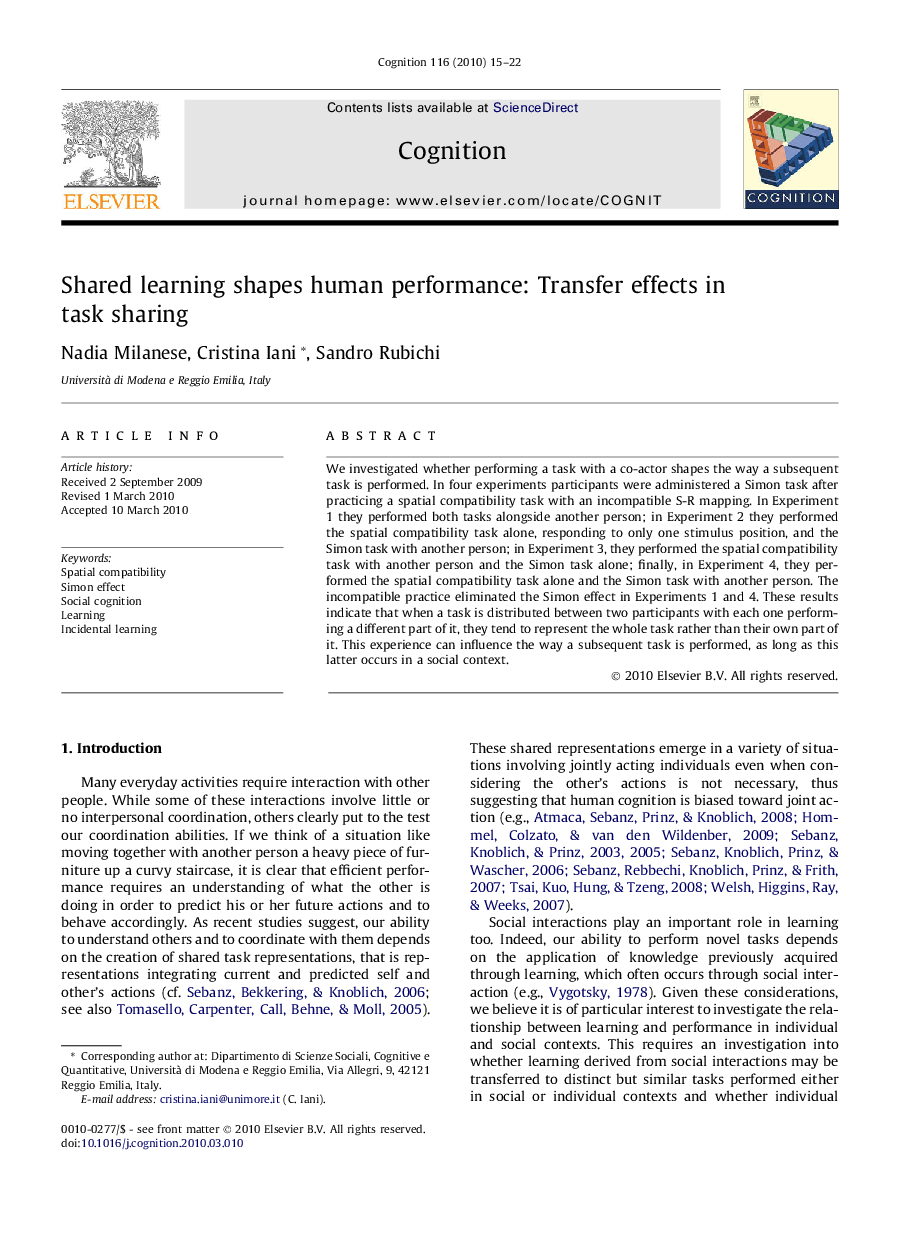| Article ID | Journal | Published Year | Pages | File Type |
|---|---|---|---|---|
| 926972 | Cognition | 2010 | 8 Pages |
We investigated whether performing a task with a co-actor shapes the way a subsequent task is performed. In four experiments participants were administered a Simon task after practicing a spatial compatibility task with an incompatible S-R mapping. In Experiment 1 they performed both tasks alongside another person; in Experiment 2 they performed the spatial compatibility task alone, responding to only one stimulus position, and the Simon task with another person; in Experiment 3, they performed the spatial compatibility task with another person and the Simon task alone; finally, in Experiment 4, they performed the spatial compatibility task alone and the Simon task with another person. The incompatible practice eliminated the Simon effect in Experiments 1 and 4. These results indicate that when a task is distributed between two participants with each one performing a different part of it, they tend to represent the whole task rather than their own part of it. This experience can influence the way a subsequent task is performed, as long as this latter occurs in a social context.
